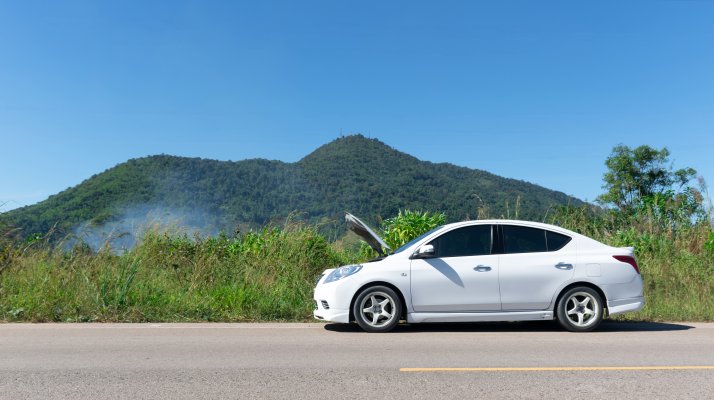No matter what kind of car you drive, whether it’s brand new or a used vehicle, insurance is of paramount importance for you as an owner. All vehicles end up in a repair shop sooner or later and it would be naïve for anyone to think differently.
Cars are made to be road worn and as the numbers on that odometer start to grow, so will the chances of mechanical breakdowns. And cars nowadays have become extremely complex, computerized and full of fancy components. The more sophisticated the car, the more expensive the repairs, because the parts in it are pricey and the labor is intricate. That is why it is very important to be financially prepared for any issues that might occur.
Is your factory warranty enough?
When you buy a new vehicle, you also get a manufacturer’s warranty with it. The two most important warranties offered by your dealer are the bumper to bumper warranty and the powertrain warranty.
The bumper to bumper warranty is the most complex one and it pretty much covers everything in your car, from bumper to bumper.
The powertrain warranty is more basic and simplistic in coverage than the bumper to bumper warranty and it is usually what you’re left with after the bumper to bumper warranty expires. The powertrain warranty only covers the components that make the car move forward and backward.
So the bumper to bumper warranty is what interests you more, because it is more comprehensive. And this type of warranty is usually offered for 3 years or 36,000 miles (whichever comes first). Depending on the car make you choose, the duration can increase. For instance, Volkswagen offers 6 years of warranty, while Mitsubishi, Hyundai, Kia offer 5 years. But even so, most of us are not made of money and we don’t throw our cars away after the warranty ends. We keep them on the road for as long as they can take it. That is why we need to avail of additional precautionary measures, because car trouble can knock on our door when we least expect it. The higher the mileage on our car, the higher the risk.
What is an extended car warranty?
Extended car warranties are also referred to as vehicle service contracts (VSC), which is a more correct name for what we are describing in this guide. They are quite popular nowadays, as they can offer you peace of mind when it comes to your car. They are sold by dealers or third-parties, for both new and used vehicles. An extended car warranty is a contract between you and the seller that covers you in case of certain car problems. If your vehicle breaks and the damaged part is included in your policy, the extended car warranty provider will pay for the repairs.
Extended car warranties offer a variety of choices in terms of coverage, from only basic coverage that includes the essential components such as engine, transmission to a comprehensive coverage that is similar to the manufacturer’s warranty and includes most of your car’s parts and systems. The more expensive your contract, the more extensive the coverage.
How much does it cost?
Extended car warranty providers don’t usually give fixed quotes when you visit their website. It would be quite difficult for them to do so, given that the price of an extended warranty depends on many factors: the car make, the year of production, the car mileage, the type of coverage you want to opt for, the duration of the warranty and more. There are however some estimates offered by some providers, to give you an idea on how much you’d have to pay. You usually have to fill in a form with details such as those mentioned above and they give you an informative quote. If you want exact numbers though, you have to contact the sale department and get a specific price tailored to your specific case and needs. Depending on what car you have, you might not be eligible for all the types of coverage, as plans have different requirements, such as a maximum number of miles on your vehicle and so on.
Should you invest in an extended car warranty?
It is normal for you to ask yourself why spend your money on a piece of paper that may or may not be useful to you in the end? While we understand your skepticism, think of it this way: chances are something will go wrong with your car at a certain point. What if that happens after your manufacturer’s warranty has expired and you have no other form of coverage to protect you? You could make a “car emergency fund”, to have some money stacked away for dark days, but how many of us are willing to commit to something like that?
The other way to go is to opt for an extended car warranty, which is a small monthly expense that you’re not going to feel that heavy on your wallet. Most extended car warranty providers offer the possibility to pay for your warranty in monthly installments, so you don’t have to come up with all the money at once. And extended car warranties come with a lot of benefits that you’d otherwise have to pay for yourself, which means even more money than just for the repair. As that saying goes: prevention is better than cure.
What to look for when in the market for an extended car warranty?
Duration. In most cases, these car warranties extend the factory warranty of your vehicle with at least 1 year and up to 5 years, depending on the provider. The more years you add, the better the price will be, so it might be a good idea to opt for more years than just for 1 or 2.
Mileage limitations. Always take into consideration the mileage limitations when you buy an extended car warranty. All companies have their thresholds when it comes to how many miles your warranty will cover you for. Some offer you coverage for up to 100,000 miles, others for fewer or more. If your car already has 85,000 miles when you sign the extended car warranty policy and you are only covered for up to 100,000 miles, that wouldn’t be the best deal.
You should also pay attention to mileage restrictions; extended car warranty providers only accept vehicles with a certain mileage on them, depending on the coverage plan you opt for; for instance, if your vehicle has more than 100,000 miles on the odometer, you might not be eligible for some of them.
Coverage. The coverage of an extended car warranty depends on several factors: how much you are willing to pay for the policy, how old your car is, what its mileage is, etc. Most companies offer several coverage levels and plans, so check out their entire offer before making a decision. Most extended car warranties offer inclusive warranties (only the named components in the policy will be covered), powertrain warranties and exclusionary or bumper to bumper warranties, which are the most comprehensive ones and they cover almost your entire vehicle. The latter type is obviously the priciest one.
Reputation. This is an advice you should consider no matter what kind of purchase you want to make. You should always check the reputation of the provider. Read reviews, see what its customer ratings are, how experienced the provider is (how long it has been in that business for) and what its Better Business Bureau accreditation is. A+ is the highest BBB rating and it’s what reputable companies strive to obtain.
Payment options. The great thing about extended car warranties is that most companies offer you the possibility to pay for your policy in several monthly installments, so that you won’t have to come up with too much money all at once. This is a good incentive for customers and a win-win, because this way, the company gets more clients as well. Depending from seller to seller, the payment can be spread over 12, 18, 24 monthly installments or so.
We did a lot of investigations during our extended auto insurance reviews, and we have placed AutoPOM! as our number one preferred choice.
Deductible. Even though an extended car warranty spares you from spending money on car repairs, most companies charge you a deductible you have to pay when you take the car to the repair shop. This deductible varies from provider to provider, but you should obviously aim for a smaller deductible. The average deductible is around $100, but they can vary from $50 to $300.
Some companies also charge a down payment, but there are plenty of providers out there that don’t, so pay attention to this aspect as well.
Included benefits. In addition to paying for your car repairs, extended car warranties also include some standard benefits. Here are the ones you should keep an eye for:
- Transferability; you should have the possibility to transfer your extended warranty to someone else, in case you want to sell your car while you are still covered by the policy
- Nationwide coverage; reputable companies allow you to take your car into any authorized repair shop in the country, so try to avoid companies that limit you to a certain network they have a partnership with
- 24/7 emergency roadside assistance; this one is a big deal because you never know when you might need assistance; maybe you accidentally lock your car keys inside; you might run out of gas, you can have a flat tire, your car battery might run out of power and so on; all these and more benefits are usually included in the offer by reputable companies
- Rental car reimbursement: you might depend on your vehicle for commuting or doing your job, which is why this benefit is important; in case your car breaks down and needs to go to the repair shop, the extended car warranty provider will reimburse you for renting a car for up to a week or so, so that your daily activities won’t be hindered in any way
- Trip interruption reimbursement: say you want to go on a road trip and your car breaks down while you are on the road, far from home; if your vehicle is kept overnight for repairs, you will be reimbursed totally or partially for a hotel and other travel-related expenses





